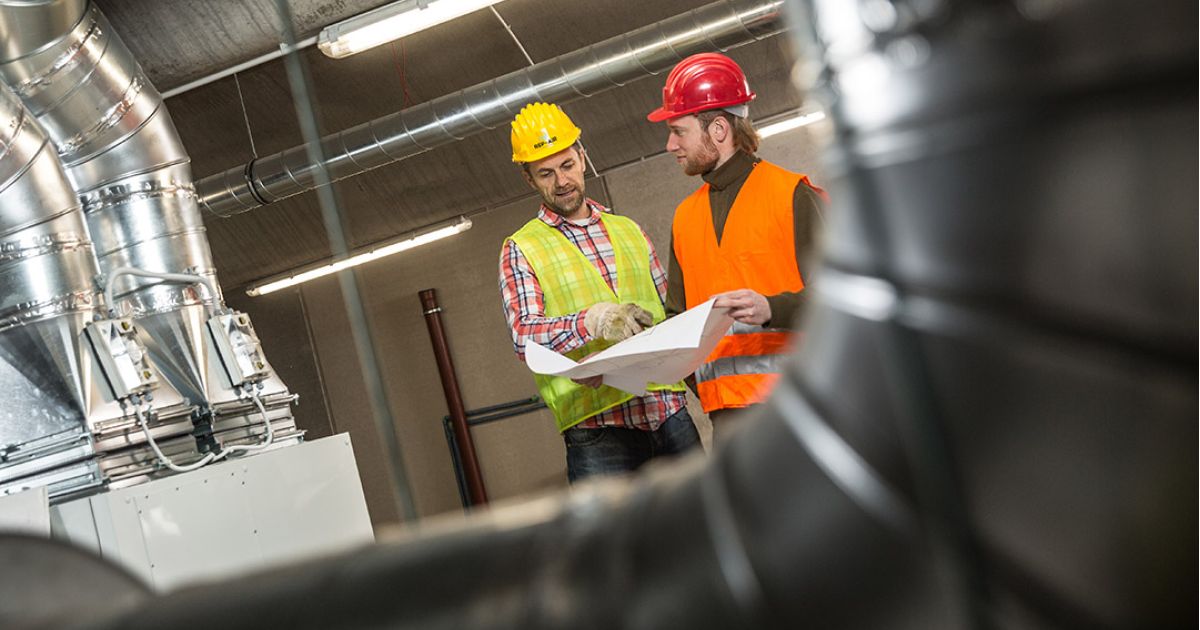5 Things to Consider Before Replacing Your HVAC System
IMPORTANT NOTE: . Our company is located in British Columbia, Canada. If you are reading this article in another location, we hope you enjoy the information, but unfortunately we cannot service you.

It’s great to feel comfortable in your home throughout all four seasons of the year. That’s why we know you rely on your HVAC systems so much. The highest quality system can last between ten to twenty years, but just like everything in life, there comes a time when it gets old, wears out, and starts to fail.
At this point, you may be browsing online and shopping for a new system, but the truth of the matter is getting a new system is not as straightforward as you think. With that in mind, here are five things you really need to consider before you go and replace your current HVAC system (and also way before you start shopping for one!).
- The Type of Heating or Cooling System
We’ve mentioned this before, but there is more than one type of heating and cooling system to consider before you go and replace your current one. For example, are you looking to replace your portable one? If so, have you looked at the possibility of adding centralized heating and cooling instead? Depending on where you live, what kind of home you live in, your financial situation, and your personal level of comfortable temperature, the type of system you’re looking to replace should be considered first and foremost.
If you’re renting as opposed to owning your property, then a centralized system is something you don’t need to worry about (you may want to bring it up with your landlord, though, if the temperature doesn’t seem right or normal). If you own your property, then you may want to invest in central A/C and heating so that the temperature is comfortable and in your control at all times.
- Size
Not only does the size of your home need to be considered, but also the size of the system you need for maximum comfort in temperature matters. You need to figure out the dimensions of your home as well as the frequency of use applied to your systems. Otherwise, you may end up buying a system that’s either too big and frequently shuts on and off, or too small and ends up overused and requiring more repairs sooner than you intended.
Don’t feel too badly if it takes a while to find the right size system either. It’s really for the best that you don’t settle on the first big or small system you see. If you need any assistance getting dimensions and other measurements sorted out, you can always ask your technician to take a look; sizing things up is part of their job.
- Quality
It can be easy to settle on the cheapest system for your home, but hold that thought! Just because it’s cheap does not mean it’s of good quality (a rule of thumb that applies to everything in life!). Sure, the higher quality systems can be expensive, but in actuality you’ll be saving money down the road.
Be sure to check the branding of the system also, as their reputations can also impact the quality of the system. Be sure the brand offering the system has a good reputation and really do your homework for the sake of reliability assurance. Asking your HVAC technician about the different brands can help too!
- Features
Almost all of the latest models of HVAC come with brand new features your old system probably doesn’t have. Programmable thermostats are one; timers are another. Some other really cool features that can be found in most new systems in the market are comfort zoning, automation, and even smartphone connection.
You also need to consider whether the filter in the latest system can be removed for cleaning or not (if so, great—that will make maintenance on your part much easier). Really look at each system’s components and not just the price tag. If it looks like cleaning and maintenance will be too much of a hassle for you, then it’s probably not worth buying.
- Ductwork
Like your system, the ducts in your home probably need to be replaced, or at the very least inspected by your HVAC technician. This should especially be done if it’s been years since you first installed the ductwork; like your HVAC, these ducts can experience wear and tear due to the continuous exposure to heat and humidity.
It can also, to some homeowners’ surprise, be the very reason why their HVAC system isn’t working at its fullest capacity. Any ductwork including insulation that’s been poorly applied or is wearing thin or has holes and gaps can create considerable heat loss. Therefore, it’s a good idea to ask your technician to check on the ductwork and ensure it’s in good health before you buy a whole new system.
Need help getting your new system installed? Want to check on the old system before replacing it? Or do you need advice from a technician in general? Whatever your HVAC needs, we’re here to help! At Rep-Air Heating And Cooling we provide our customers with many options that will best suit your needs from heating and cooling to refrigeration. Contact us today for your complimentary quote: 1-844-218-3362 or [email protected] and don’t forget to take a look at our website: https://www.repairheatingandcooling.com. Follow us on Facebook and Instagram for free giveaways!
Request your service today!
Our team of highly trained technicians are standing by ready to help you out with all of your service, repair, and installation needs. You can count on us for on-time repairs, professional installation, and the friendliest customer service in town!Contact Rep-Air Heating & Cooling today to get started with service by requesting a quote online, or by phone at (844) 218-3362.
Request Service
Contact us today to request an estimate or schedule service.






